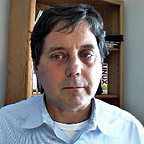My last interview with Heesob Nam
In April 2021, I began an interview with Heesob Nam, a very important actor in efforts to expand access to medical technologies. Heesob unfortunately died on May 10, 2021, before completing the interview.
Heesob is a patent attorney working in Korea who holds a Ph.D degree in law from Queen Mary, University of London and a master’s degree (LL.M) from Munich Intellectual Property Law Center. He was active in a number of different civil society organizations, such as the Civil Society Coalition, Open Net Korea, IPLeft and the Korea Progressive Network, and an advisor to the National Human Rights Committee on the issue of right to science and culture.
Below is his answer to the first question he was asked.
Question. When did you first become interested in issues relating to patents, copyrights or more generally, ownership of knowledge?
Answer:
I became interested in IP and knowledge commons when I was working for Samsung Electronics in 1992. At that time, I was a researcher of circuit design of memory chips. One day I was contacted by legal teams asking me to review a warning letter from Texas Instrument. It was very odd for me to see TI’s argument that Samsung infringed TI’s patent and if Samsung continued the infringing activity, Samsung would be punished by civil and/or criminal legal…
